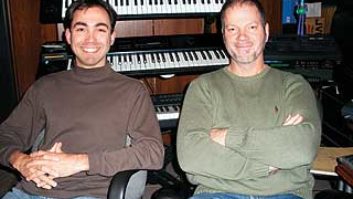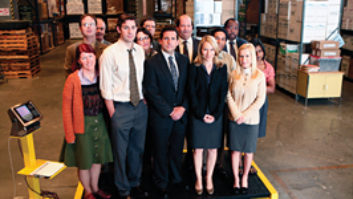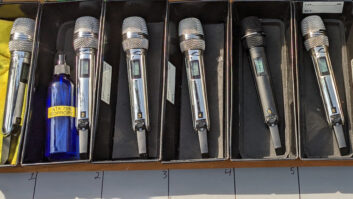[Editor’s Note: Ever since Nostalgia director James Bartling finished his film, he has been trying to sell it in today’s climate, with little help. We asked him to share some of the “business” side of today’s filmmaking experience.]
When asked about my profession, I explain that I’m a dork from Long Beach who happens to have a privilege of falling in love with ideas. I’ve spent 13 years making a truly independent movie, Nostalgia, and have worn many different hats, most recently as a distributor. I have no bigwig Hollywood ties. My family has risked a second mortgage against our house for funding, and we’ve come a hair’s breadth from foreclosure. I’ve been ripped off tens of thousands of dollars, and to date I haven’t earned a penny. Through it all, I have truly maintained my love of art, its processes and its people.
Traversing the entertainment world is an intimidating and potentially frightening prospect. Can the creative side reconcile with the business end? How can I constructively survive in this industry when it can appear more likely to meet someone who cares more about their own personal gain rather than one who wants to develop a meaningful collaborative working relationship?
Becoming a distributor grew out of necessity. Nostalgia was screened for larger distributors in early 2009, and of the roughly dozen invited, only one attended. I was turned down. The struggling economy played a role, I was told. No one wanted to take a risk, no matter how conservative, and they still don’t today. So how do I deliver Nostalgia to the theatrical market and make the economy work for me?
I do my research and get on the phone. From the beginning, Nostalgia was intended for the theater; it was shot and mixed that way. My instincts told me that distribution through any other market first would mean the kiss of death, so that narrowed my focus. When speaking with theater circuits, a key point of my pitch is drawing an untapped audience who do not normally attend. I include myself in that grouping. Hollywood as a business looks at the bottom line: money. At the end of the day, my product has to sell itself.
On a practical level, I’m responsible for the completion and delivery of the physical product, all related promotional materials and a marketing plan of attack that can all simultaneously execute during the course of an entire year, depending on how the movie is rolled out geographically. I don’t have the space here for a detailed essay outline, but let’s say you’re a distributor and a theater circuit that has 20 theaters in one state takes you on. Just because those theaters are available doesn’t mean you’re going to open in all of them at once. The circuit will most likely select three theaters in specific cities to start, based on the economic knowledge of the population that has the most history of supporting your film’s genre. After a few weeks, if business does well, one or more of those prints may be shipped to other theaters throughout the state, continuing the cycle. Knowing this going in, you save money at the outset, freeing up funds for other needs and opening up the opportunity to make enough in sales to pay back into itself if the need arises. When and where a movie is first released is referred to as its “first run.” It is not uncommon for a movie to have a 32nd run. Nostalgia‘s opening run is tentatively slated for March of 2010. It is no accident that its soundtrack is released first to kick off the marketing campaign. Composer Arlan Boll and myself are hoping that interest in the music will carry over to the movie, given that each is strikingly original in its own way, and we will be updating this journey on Nostalgia‘s Website (www.nostalgia-movie.com), which launches in January.
A remarkable offer for angel funding came in June, from a source who attended the first screening. This offer included paying for prints and advertising, although none of those funds have yet been made available. So for the conceivable future, I’m still going it alone, with only my wits about me. It’s a rather exciting prospect to bring an independent production to fruition in a completely independent way.
One of Nostalgia‘s main themes is “connections,” and that applies perfectly to my role as a distributor. I’m just one man, without a car, without a cell phone, sitting in a small room, using a single land line, making a sincere human connection with the person on the receiving end. Along with having a product you believe in — created from real sweat, blood and tears — this connection is what’s most important; it’s what it takes.






